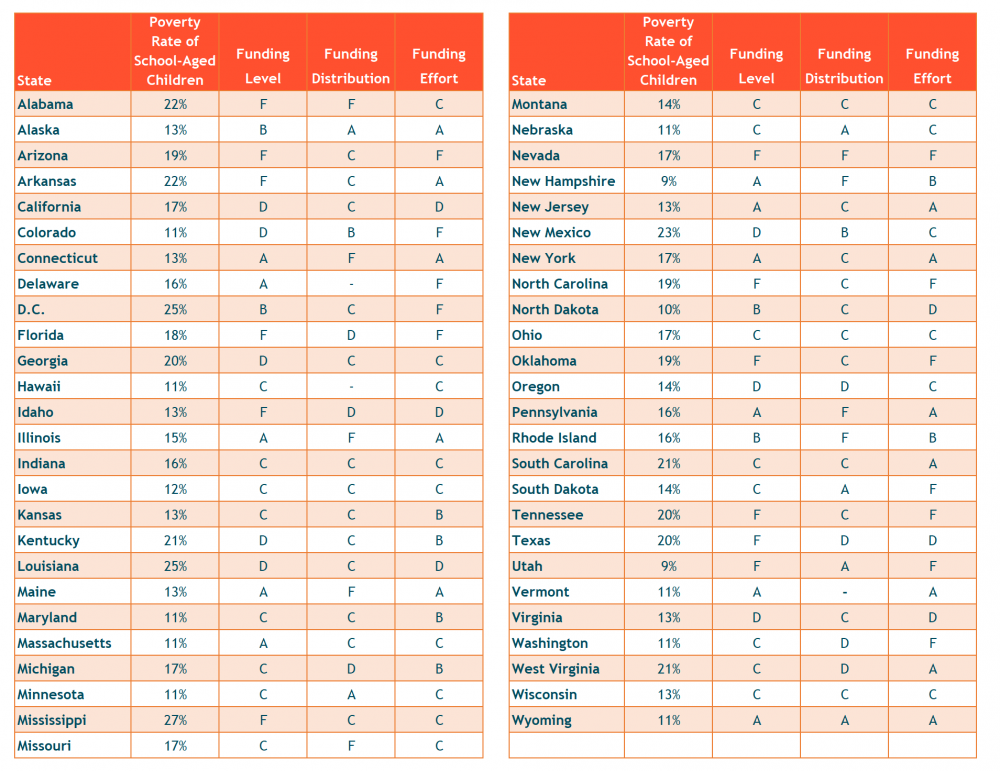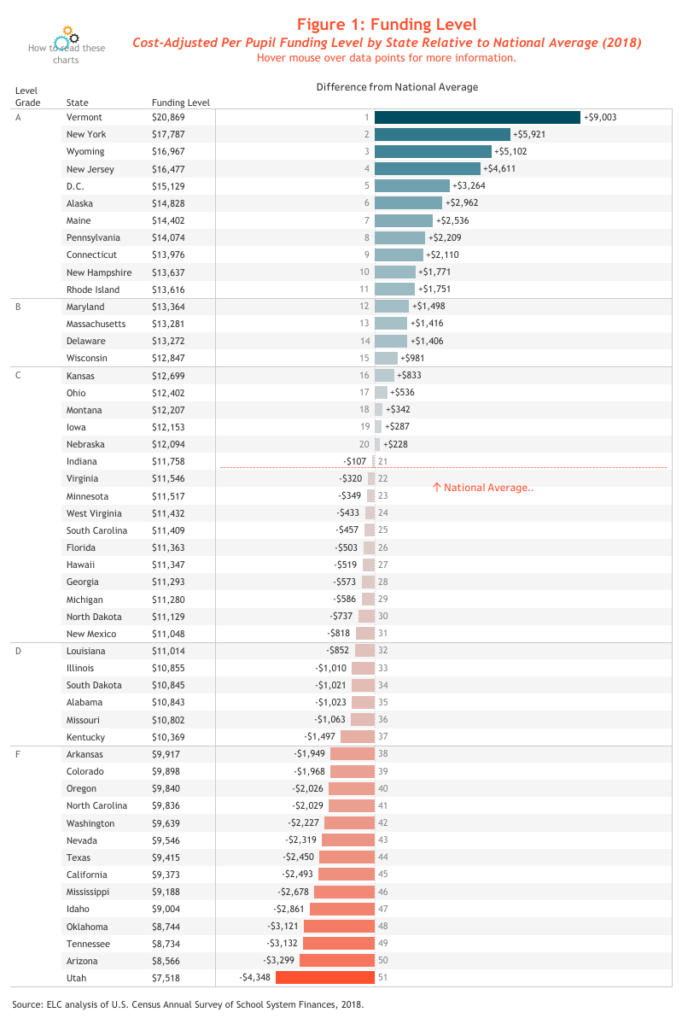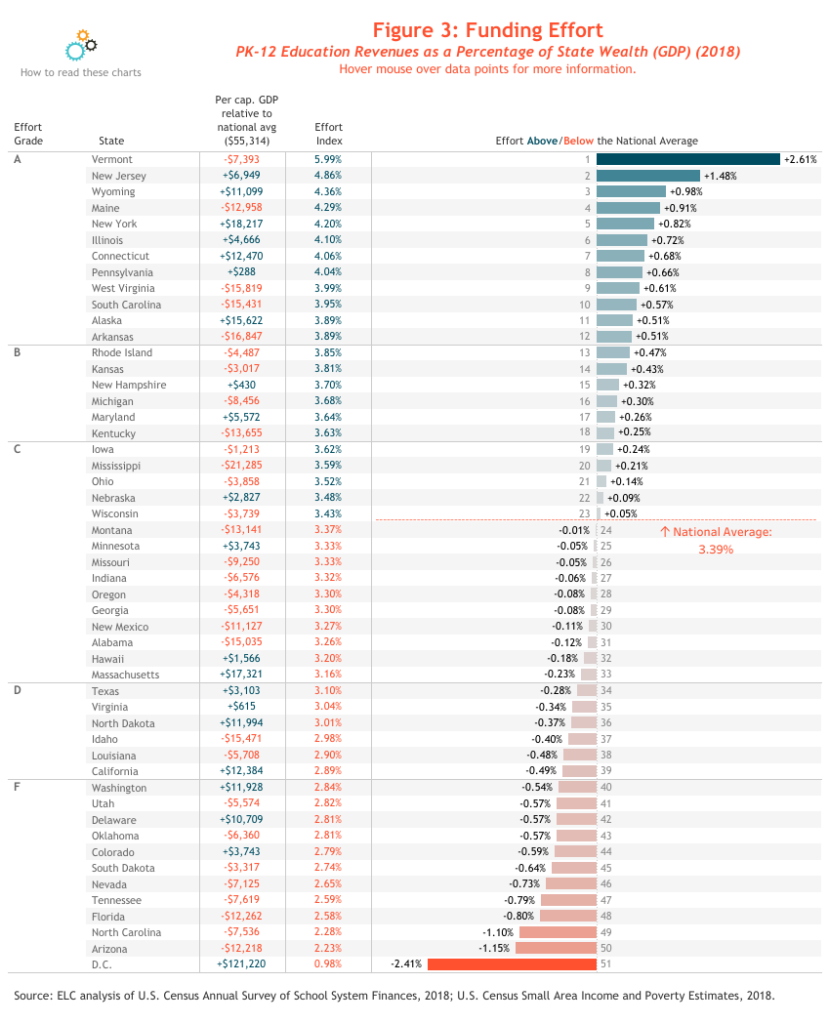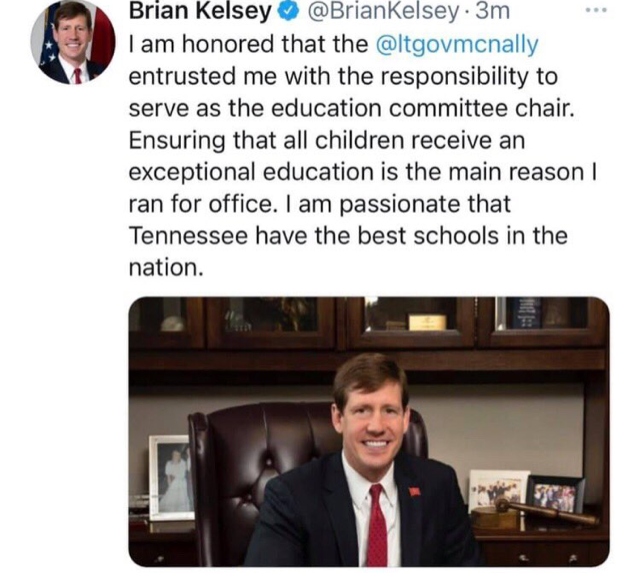The Education Law Center recently published its annual analysis of school funding in the states. Once again, Tennessee received a grade of “F” in both funding level and funding effort. I could actually write this exact same story every single year. Tennessee doesn’t adequately fund our schools. The bipartisan group TACIR – Tennessee Advisory Commission on Intergovernmental Relations – says the state is $1.7 billion behind where we need to be in funding for schools.
We also fail at funding effort – that is, we have significant untapped revenue and high dollar amounts held in reserve while our schools lack the critical resources they need to be successful.
Meanwhile, so-called education advocates like SCORE run around touting the latest new thing (this year, it’s a literacy scheme) instead of using their considerable clout and fundraising ability to push for meaningful investment in schools. Of course, the leadership over at SCORE is not hurting for cash based on their salaries.
Here’s the Education Law Center’s state-by-state breakdown on school funding:

Here’s data on funding level:

Here’s what the ELC has to say about funding level:
A state’s funding level is measured by analyzing the combined state and local revenues provided through the state school finance formula, adjusted to account for regional variations in labor market costs.
A state’s funding level grade is determined by ranking its position relative to other states; the grade does not measure whether a state meets any particular threshold of funding level based on the actual cost of education resources necessary to achieve state or national academic standards
Here’s information on funding effort:

Here’s what ELC has to say about funding effort:
Depending on a state’s overall wealth, every tenth of a percent (0.1%) of state GDP invested in PK-12 public education can have a big impact. For example, that figure is $33 million in Vermont – the nation’s smallest economy – and up to $3 billion in California – the nation’s largest. Figure 3 juxtaposes a state’s relative effort (compared to the national average) with its per capita GDP to contextualize how the effort index interacts with the state’s relative wealth to produce high or low funding levels.
So, here’s the deal: Tennessee has the resources to make meaningful investments in our schools. Our leaders are choosing not to. Year after year after year. Policymakers run for office making all sorts of promises about investing in schools, and fail to deliver. Of course, in the case of Bill Lee, he promised to privatize our schools and he’s attempting at every turn to deliver on that promise.
Tennessee isn’t adequately funding schools, and despite political rhetoric to the contrary, our leaders aren’t trying. At all. Ever.
So, when your local representative or senator comes to an event and tells you they support your schools, you can tell them the truth. Their actions suggest otherwise.
The ELC Report Card tells the real story.

For more on education politics and policy in Tennessee, follow @TNEdReport
Your support – $5 or more – makes publishing education news possible.








